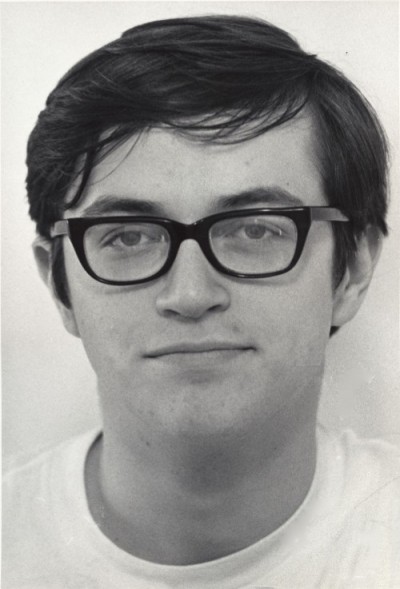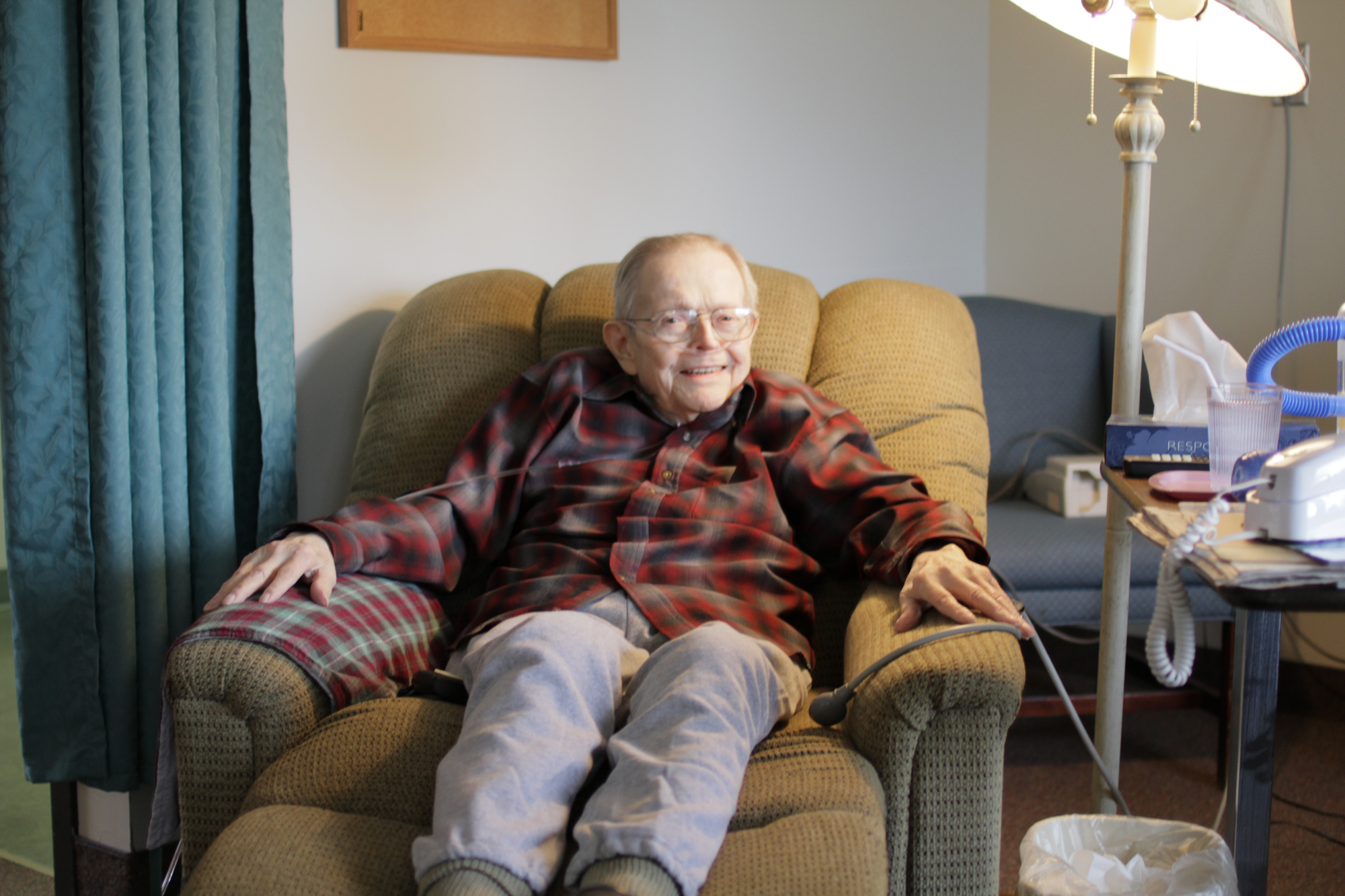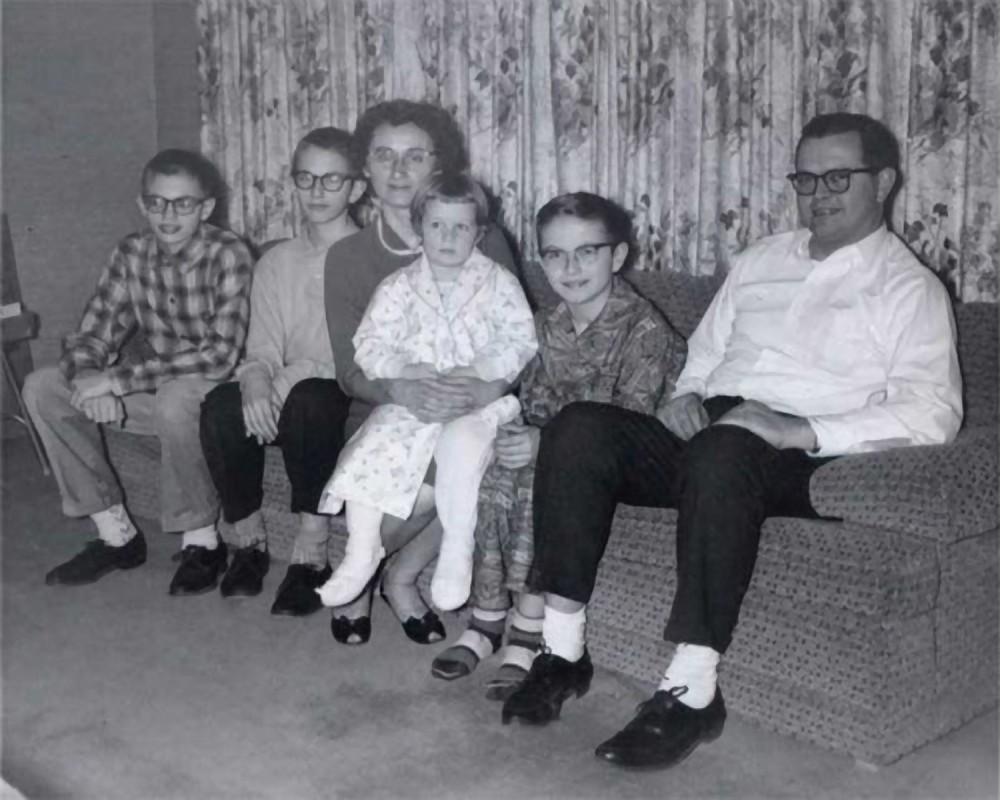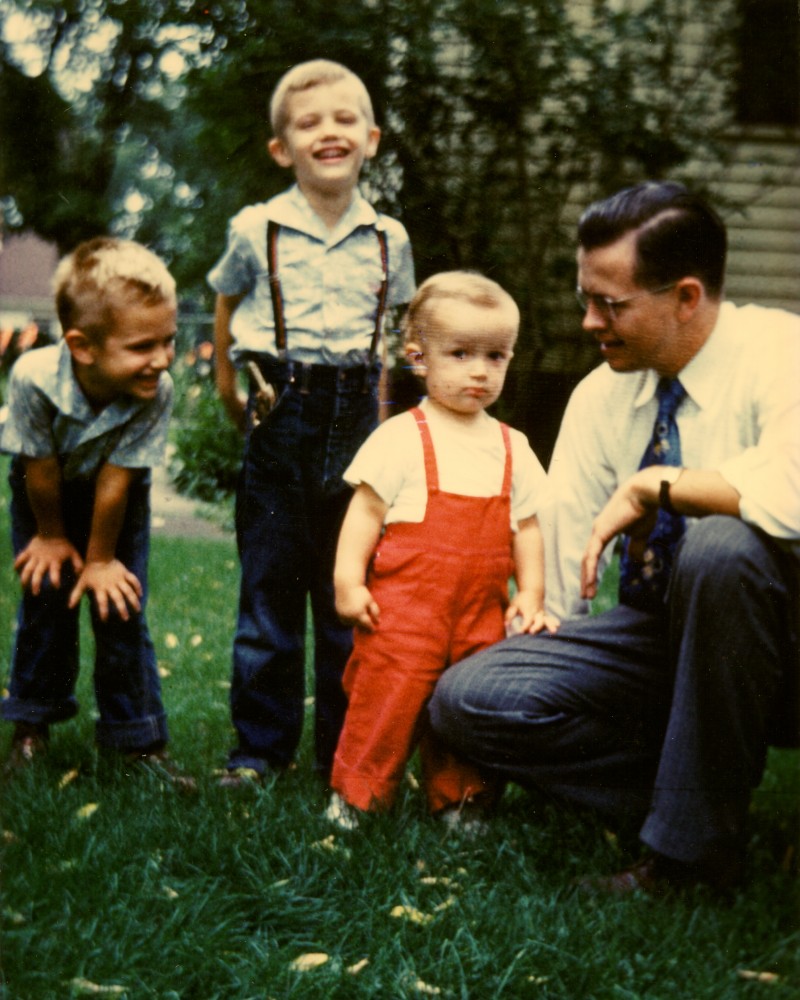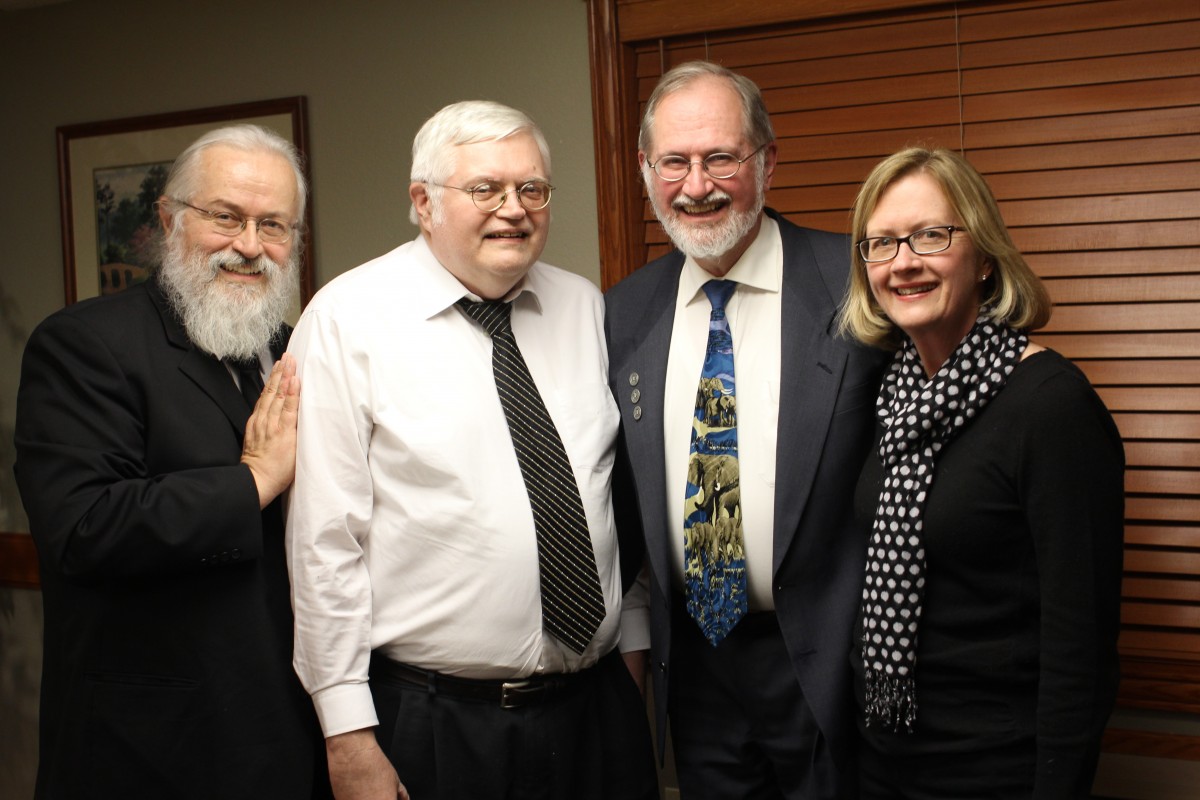Clarence Neil Lund – born 25 August 1928, died 28 January, 2012. The following remarks are from his funeral service on 4 February 2012 at Rochester, Minnesota. The three sets of remarks are from his sons, Richard, Jerome, and Steven.
Richard Lund
A friend from long ago shared these words from Paul’s letter to the Thessalonians on facebook. Linda lost her dad a year ago.
“Brothers and sisters, we do not want you to be uninformed about those who sleep in death, so that you do not grieve like the rest of mankind, who have no hope. For we believe that Jesus died and rose again, and so we believe that God will bring with Jesus those who have fallen asleep in him.”
In the beginning of my family, Lars Jacobsen begat Niels Larssen, who begat Matias Nielsen, who begat Nicolai Matiassen, who begat Nils Nicolaisen Lunde, who began Clarence Melvin Lund, who begat Clarence Neil Lund, who begat me, Richard Eugene Lund. Clarence was born in Wild Rose, North Dakota to a farmer turned grocer and a former school teacher turned stay-at-home mom. She was Marguerite Madeleine Gauché, born in New York City, orphaned in infancy, and raised by the Sisters of Charity at the New York Foundling home. She was sent on the “orphan train” to the Dakotas for adoption, being entrusted with a younger boy to watch over in the group going west. She was just about three years old.
Neil was the third born in the family, and the first born son. His older siblings were Muriel and Rita Maureen. Later to come were Gerald, Giles, Marguerite Jean, and Raymond. The family moved to St. Cloud, Minnesota in 1930. At some point Lawrence, Neil’s uncle, became permanently attached to the household as well.
Neil married young and moved to Willmar, Minnesota to begin his career as a grocer. He managed stores there and in Watertown, SD, Long Prairie, Little Falls, and then moved to Hopkins to work at the main office of the National Tea Company. Shortly he moved back into stores, first in Wayzata, then Fairmont, and on to Rochester, Minnesota. Late in his working life he tried something new, working for Pacific Studios in New York City and Los Angeles serving rental customers. He retired to Rochester, nursing an injury from being hit by a car. He began to walk a neighbor’s dog because the dog was alone all day. After some time, he gained back his strength and decided to go back to work. He applied at an opening for a cashier at the parking ramp downtown and was hired on the spot. He remained in that role for more than twenty years, making friends as he made change.
He fathered four children, Steven Neil, Jerome, me, and my sister Jean.
During my childhood, he wore white shirts, tie, and slacks to work every day. I never saw him in a pair of blue jeans. He drank Hamm’s beer and smoked Winstons. He liked the Cadillac, but settled on a Rambler. He was the defacto banker for people in need before food stamps. He heard the Bible read in church, didn’t read it much himself, and had a son who went on to become a Bible scholar. He laughed at Precious Pup and watched the Three Stooges with us and also Rocky and Bulwinkle. He read the Sunday comics to us before we could read them for ourselves.
He took us to Lake Carlos for many summer vacations and taught us how to fish. He fished for bass and not bullheads. He read many books, broadening his vocabulary, which broadened mine as well.
He was a good man. He valued education, although he only went to high school. All of us children finished college. He showed us that a man goes to work every day, no matter what happened the night before. He loved a good joke and could use wit and sarcasm well. He kept his cuss words away from our ears. We had to learn them someplace else.
I never remember him criticizing my mother, even after their marriage ended. After a long time he remarried. Beverly Kohn was his bride. They met at work. She told me the other day that she was not sure she liked him at first, but over time things changed and they married.
As a young boy, he taught me to pray as his mother had taught him. I would hold my hands together flat, without intertwining my fingers. He said to start prayer and end prayer by making the sign of the cross and saying “In the name of the Father, and of the Son, and of the Holy Ghost, Amen.” I am sure that I heard him say the Lord’s Prayer, commonly called “Our Father.”
Over the years, we had lived far apart. I think we had grown apart, too. But in the final days of 2011 and the first six days of 2012, we had the opportunity to spend many hours together, talking about the stuff that matters and stuff that doesn’t. It was a very good time for me. Our hearts once again were fully open to each other.
I made it a point to phone him often in the weeks following. One day I realized that my granddaughter was sick with pneumonia, the same disease that he was fighting. For the first time in my memory as a dad, I asked him to pray for Maggie, that God would heal her. And he did pray for her, checking up on her progress in later calls. On the last phone call I made to him when he could still talk somewhat, I remember telling him that I would say a prayer with him, the Our Father. I ended it with the words from the sign of the cross. The next day I called, but he could only talk for a bit and rushed to say that he had to hang up and say good-bye.
In one of those final conversations, he reminded me that both he and my mother were good people. I said yes. I added, I am so thankful for forgiveness. He laughed his agreement to my punctuation.
My son Neil asked him for his advice for his son Bryce, who is not yet one. What would Grandpa want Neil to tell Bryce when he was old enough to understand. Grandpa said “Love is the most important thing.”
In the name of the Father, and of the Son, and of the Holy Ghost, Amen.
Jerome Lund
A Celebration of Dad
We are gathered here today to celebrate the life of Clarence Neil Lund, to some of us Dad, to others Grandpa, still to others Great-Grandpa, to some a brother, to others a brother-in-law, still to others an uncle, to many a friend, and to one ‘my beloved husband’. We are gathered here today to celebrate Dad’s life. Yes, it is a time for us to mourn our loss, but we must also remember the joy that he brought into our lives.
With Job we must say, “The Lord has given, The Lord has taken away, blessed be the name of the Lord.” We need, too, to pray with Moses, Lord, “teach us to number our days, that we may apply our hearts to wisdom” (Psalm 90:12). The length of life, according to the Psalmist, is 70 years, or if blessed by physical strength 80 years. We are thankful that the Lord gave Dad 83 years upon the earth. It was his wish to retain his clear thinking and good humor until the day of his death. This he did and for this we give thanks.
Not too long ago as Dad lay upon a hospital bed, he recorded an important message to my brother Steve and me. Richard had already received the charge and recorded Dad’s message for us. Dad solemnly uttered: Boys, I want you to remember something very important and to repeat it to your children and grandchildren. Then, he continued with a very serious look on his face: Remember that kut-kut-ke-dak-kut is spelled with a ‘k’. Now, kut-kut-ke-dak-kut is what the hen says according to a children’s book. It was a fun family word that he used when we were young. This reflected Dad’s good sense of humor, even when he was suffering. A couple days before his death, Dad gave a password for his loved ones to give to the nurse to find out about his medical state of affairs. That password was ‘rascal’, the name of his favorite cat, but also reflective of his good sense of humor.
In a more serious vane, Dad told me that the most important thing was to love your family. This he repeated on a number of occasions during the last weeks of his life. For me the most important thing that Dad gave me was his unconditional love. Years ago, when I had become an adult, Dad said to me: “Son, I love you.” I will never forget those words. They pierced to the depths of my heart, giving my joy, peace, and strength.
Dad was a good conversationalist. During a recent conversation, I shared with Dad how that when I attended college in Scranton, Pennsylvania, I had an employer who used to pick me up on campus and give me a ride to work. My employer was 88, good-hearted, but nearly blind. One day as we drove, he passed a truck. So as to avoid an accident, I put my hand on the steering wheel and made sure that we stayed in our lane. Dad laughed and recalled a similar incident with a certain Dr. Handy from Long Prairie, where we lived for a year when I was in kindergarten. Dr. Handy had invited Dad to go deer hunting in northern Minnesota. (Can you imagine Dad deer hunting?) The trip on the way up was quite scary due to Dr. Handy being poor of sight. On the way back, Dad suggested that he drive instead of Dr. Handy. If I remember correctly, Dr. Handy allowed him to drive and Dad was relieved.
When Steve and I were young, Dad took the family to Green Lake near Willmar, Minnesota, for a day at the beach. He had had a display for tuna fish in the grocery store where he worked that included an inflatable fish, which we called Luna Ba Tuna. Dad asked the salesman if he could have the fish for his kids after they finished with the display and the salesman said yes. We had so much fun with Luna Ba Tuna in the water that day. Then, rather suddenly, a storm came up on the lake with huge waves accompanied by ominous skies. Green Lake was a large Minnesota lake, so it was very far across. The fierce wind caught a hold of Luna Ba Tuna and carried him out far into the lake. We, of course, cried Luna Ba Tuna, Luna Ba Tuna, Luna Ba Tuna. Dad was ready to swim out and fetch Luna Ba Tuna, but Mom said no. It was now too dangerous – and it was. Dad might have drowned had he ventured out. As the wind took Luna Ba Tuna out of sight, our wailing continued. In fact, Dad had to tolerate it until we came home.
When we were young, Dad worked very hard. In those days, grocery store managers had to work 12-hour days, 6 days a week. That means that he worked 72-hour weeks as a young father. Later, Congress reduced the workweek to 54 hours, then to 48, and finally to 40. I was so happy that Dad provided well. We felt as though we lacked nothing. As a young store manager for National Tea in Little Falls, Dad won a new car for his turning of a non-profitable store into a profitable one. For many years, Dad took us on lake vacations to Lake Carlos State Park near Alexandria, Minnesota. We would go up first for a week and then Dad would join us for three weeks. It was so much fun being together as a family. We never lacked. Dad always provided well.
Before I married my Norwegian sweetheart Anne, Dad commented to me on how beautiful she was and gently encouraged me to pursue the relationship – he was proud of his Norwegian heritage. Years after we were married, Anne’s Mom Helga and her friend Tone visited Dad in Rochester. Although Helga could not speak English and Dad could not speak Norwegian, they had a great time together. Now, Helga’s friend Tone had never been married. On the way out the door, Tone told Dad ‘takk skal du ha’, which means ‘thanks shall you have’ or in better English, ‘thank you’. Dad had learned as a boy that one answered that by saying ‘og gift skal du bli’, and so he answered accordingly, at which Helga and Tone burst out laughing. Dad had answered Tone ‘and married shall you be’!
In my last conversation with Dad, a few days before he died, it was difficult for him to speak. He said, ‘Just talk, I like to hear your voice’. He loved his family and his family loved him. Towards the end of that conversation, I shared a verse from the Bible, which Norwegians call ‘the little Bible’ because it sums up what the Bible says. ‘The little Bible’, John 3:16, says as follows: For God so loved the world, that he gave his only begotten Son, that whosoever believeth in him should not perish, but have everlasting life. God the Father expressed his love for us in sending his Son Jesus to die on the cross for our sins. Through faith in Jesus and his work for us, we can have the forgiveness of sins and eternal life.
It’s wonderful to remember Dad today and to recall the blessing that he has been to me. I always had a Dad that was alive, when many friends had lost their dads years ago. Now, I join with those who miss their dads. I will henceforth miss my Dad, but will treasure the memory of being loved by him in my heart forever.
Steven Lund
Memories of Dad (8/25/1928 – 1/28/2012) at his Funeral
in Rochester, Minnesota
Steven Neil Lund
February 4, 2012
Hi. I’m Steven Neil Lund, oldest of Clarence Neil Lund’s four children. I come here with all my immediate family: my wife Patricia (Pat), and our daughter Deborah (Debbie) – from Mentor, Ohio, an Eastern suburb of Cleveland. And our son Augustine (Gus), his wife Barbara, and their three children ages 10, 8, and 6: Alexis, Noah, and Zachary. They are from Kernersville in central North Carolina.
I come here with a smile on my face, a gnawing sensation in my gut, and a flood of memories in my mind. The smile is because my dad lived a long, full life and I’m happy for it. The gnawing sensation is because he’s gone and I miss him. And the memories – well, I’d like to share seven of them with you. The Gospel says “the first shall be last and the last first” (Matthew 20:16). I’d like to borrow that logic and make my last set of face-to-face memories the first one. And, then as the last memory, tell a little more about the first memory, so that the last becomes first and the first becomes last.
First (and you can tell that I’m an accountant), in April of 2011 wife Pat, single daughter Debbie, and I took Easter vacation in Minnesota. “Why would ever want to go such a cold place on vacation?” asked several co-workers. I told each one by one, “Because my dad is there.” When we got to town, Dad was in St. Mary’s Hospital for shortness of breath and diagnosed with COPD, a terminal illness. He was 82 and cheerful with the nurses. I thought back to his 80th birthday party in Oronoco organized by his wife Bev. At that party in 2008 many relatives, co-workers, and customers came. After my April 2011 vacation visit, a month later I visited him on Sunday and Monday, May 15 & 16, 2011. On Monday, May 16 his wife drove him to the parking ramp a half hour early so that he could make a smooth transition from the night shift. Just before his 7:00 am start time, the operations manager stopped by to say hello. I witnessed the cordiality Dad had with his co-worker and his manager. Then dad and I made small talk for 30 minutes as I watched him chit-chat with customers who handed in their tickets.
The first hour of parking is free, so I made sure I got out in time. As I drove out of the parking ramp, I handed Dad my ticket and looked above his booth. In big letters the sign read: NEIL. This was vintage Dad: he loved to be married, he loved having a family, he loved to work, he had a very cordial relationship with associates at work, and he loved to make small talk with customers. The memory of Dad at the ticket booth will be forever lodged in my head. That’s the first memory: Dad loved the ordinary pleasures of life. On the table in the visitation room there is a picture of my dad in the kitchen of Darrell and Sharon Hystead. They caught him washing their dishes after a wonderful evening together. At the visitation last night, Sharon Roble/Hystead patted my shoulder and said, “Keep having fun. Keep your dad’s tradition.”
Second, Dad was a practical problem solver, and — to the best of my recollection and unlike me — I never heard him raise his voice. In 1951 in Watertown, South Dakota, when I was age 4, our neighbor put down a new cement sidewalk. It was the summer and I had been outside off and on watching him. Finally he put in the last segment. It was late in the afternoon and I thought to myself, “I wonder what that stuff feels like.” So I snuck over and walked on it while it was still wet. Dad soon came home from the National Tea Grocery Store where he was the store manager. My mother reported my misadventure to him. Dad sighed, “Oh, Steven.” Then he quickly went, borrowed a trowel and smoothed out my handy work, bringing an act of childhood foolishness to a rectified result. Dad came to the rescue that day and solved my problem, — and I was very grateful.
Third, Dad was respectful to all people. I spent second to seventh grade (1954-1960) in Little Falls, Minnesota. My dad’s father, mother, three brothers and three sisters all lived in St. Cloud, a half hour away. One summer day with bright Minnesota sunshine, when I was about 10, all of our family, Dad, mom, me, Jerome, Richard and baby Jean drove to St. Cloud. Along the way you pass two little towns. I sat in the backseat on the driver’s side. Just before the first town, my dad stopped the car on the side of the rode, got out, and walked across the highway. In a parked car going the opposite direction was a family of black people headed to visit relatives in northern Minnesota. It was the first time in my life that I had ever seen a black person. In the car were a dad, a mother, and two grade school age kids. Dad talked with the black man and then he and Dad walked over to our car. The other man was carrying a gas can. Dad said through the open car window, “Slide over, boys.”
We drove to the next town and Dad dropped the man off at a gas station. The man used an expression that I had never heard before. He said, “Thanks a million.” As we pulled away, I said, “Dad, how will the man get back to his car?” Dad explained, “A car going the other way will take him.” And then Dad commented, “Some folks would not do what I just did.” In those days in small town Minnesota you never locked your doors and neighbors always helped neighbors. I could not understand what Dad meant when he said, “Some folks would not do what I just did.” So, like Mary in the Gospel, I pondered all these things and treasured them up in my heart. It wasn’t until 11th grade (1963-64) in Fairmont, Minnesota that I finally found out what he meant. That school year and the next school year my grandfather from the other side of the family stayed with us. One day I got home from school and this grandpa and I were alone in the house and sitting in the living room. All out of sudden, without any context on my part and without any apparent reason, this grandpa told me something that involves a racial slur. I won’t use the slur. This grandpa said, “If you give an N an inch, he will take a foot. If you give an N a foot, he will take a yard. If you give an N a yard, he will take a mile.” Then I remembered the words of my father and determined to follow his example. My dad said, “Some folks would not do what I just did.”
Fourth, Dad never gave out unwanted advice but he had a lot of wisdom which you could tap into. He was sometimes serious and sometimes whimsical. When I was young, he would sometimes say when we were discussing a subject, “I see said the blind man as he picked up his hammer and saw.” At other times he would look at his feet and proclaim, “Steven, I have good understanding.” But he was also serious. Wanting something good but doing nothing about it would bring out these words, “Steven, my mother always used to say to me, ‘If wishes were horses, beggars would ride.’” When I was in junior high in Hopkins, Minnesota, our family went to the funeral of a relative on the Lund side in St. Cloud. I was nervous about it going to the funeral and said, “Dad, I don’t know what to say to the people when we get there.” Dad replied, “Steven, you don’t have to say much. Just say you’re sorry.”
Fifth, Dad was the head of our household and I thank God for it. When I was 14, I began to despise my mother and her many opinions. One day I said to myself, “That’s it. Whatever my mother says, I’m going to believe the opposite.” I instinctively knew that such a modus operandi was ludicrous. But I was determined to implement it anyway. At the same time, I tried my best to get away with disobeying her by cooking up excuses. However, somehow from my very early days I had the fear of my father in me. When he came home from work one day, he took me aside and told me firmly, “Steven, obey your mother.” After that, I did obey her. But my heart was in it until a couple of years passed. Then I finally realized how much knowledge and wisdom she really had. And, if only for my own good, I should at least listen to her.
Sixth, I grew up in the 1950’s and early 60’s. My dad hardly ever showed his emotions, but he definitely had them, especially love for his children. When I went away to college 1,500 miles from home, I loaded my last suitcase in the car and then Dean Plew (driver of the car) and I went back to my house so that I could say goodbye. Dad met me at the front door. We used words, smiled but did not hug. I thought to myself, “I’ll be back at Christmas.” But my dad knew better. This was the beginning of adulthood for his oldest son. This was the last day of every day contact between father and son. As my friend Dean and I drove away, Dean looked over at me and said, “When your dad said goodbye, there was a tear in his eye.” At college I struck up a relationship with a really nice Christian girl and thought, “I’d really like to marry her. But I should get my parents’ thoughts about her first.” So I brought her home for Christmas in 1967. My dad told me privately, “Pat’s a good woman, Steve. If you marry her, I will treat her just like my own daughter.” Three years later we got married and he always treated her that way.
Seventh, Dad is an example of the maxim, “Do what you love and love what you do.” Dad worked in the grocery store business all of his ordinary working life. In Willmar, Minnesota he began as a produce manager, in other towns he was a store manager for many years, and then – to avoid being transferred to Iowa far away from family, he ended up working for Piggly Wiggly in Rochester and then as a produce manager for Erdmans also in Rochester. So he started as a produce manager and ended as a produce manager. During that time, except for two weeks when he had an operation for varicose veins when I was in the sixth grade, he never missed a day of work. Then Dad worked for my brother Richard managing a field office in New York City for a company that makes backdrops for movies and TV shows. This lasted about a year until he was struck by a car while crossing the street to put the company mail in a mail box. He had hip replacement surgery and walked with a cane thereafter. Finally, for the last 21 years he worked for the parking ramp business in Rochester.
When I was very young, my mother read us boys lots of books. My favorite book was about a grocer, just like Dad. My second favorite book was “The Little Engine That Could.” It told the story of a small engine that one day had to pull a very heavy load. It did that gargantuan task by saying, “I think I can. I think I can.” My dad was like that. He didn’t know everything about the supermarket business, but he always had a determination to succeed. At the back of the book on the end leaves were pictures of train wheels. After the story was over, my mother would hold the book open to those train wheels, then move the book as if the train wheels were moving and, at the same time she’d say, “I think I can. I think I can.” I sometimes thought to myself, “Just like Dad.”
Last, in mid-April of 2011 Pat, Debbie and I went to church in Rochester and then visited Dad at St. Mary’s Hospital. Pat and Debbie walked out of the room, leaving me alone with Dad. I said to Dad, “This is Palm Sunday. May I read the Gospel and say a few words?” He said, “Yes” and I read Luke 19:28-40: as Jesus the Lord rode along on a colt, multitudes spread their coats on the road and cried out, “Blessed is the King who comes in the name of the Lord! Peace in heaven and glory in the highest!” In the Old Testament there are two primary words for God: God and Lord. The Gospel calls the Father “God” and calls Jesus “Lord.” The Father is God, Jesus is God, and the Holy Spirit is God. And yet there is one God. The second person of the Trinity became a human being. So Jesus is both God and man. That’s the person of Jesus. Next, Jesus told us his mission: to die for our sins on the cross (“as a ransom”) and to rise again. On the Friday right after Palm Sunday many of the very same people who were so enthusiastic about Jesus five days earlier now turned on him and said, “Away with him..” But some remained faithful. I said, “Dad, may all of us turn from our sins, trust in Jesus as God and Savior, and follow him to the end in the company of his people. Amen.”

